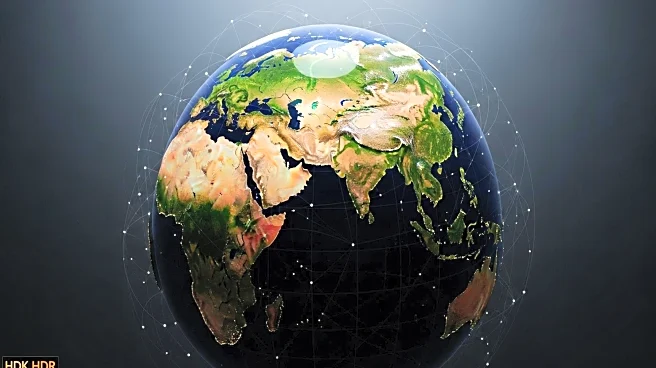What's Happening?
The United Nations Security Council is set to reimpose sanctions on Iran due to concerns over its nuclear program. This decision follows a 30-day period initiated by France, Germany, and the United Kingdom, who declared Iran's non-compliance with the 2015 nuclear deal. The sanctions, known as 'snapback' measures, will freeze Iranian assets abroad, halt arms deals, and penalize the development of Iran's ballistic missile program. Despite diplomatic efforts by Iranian President Masoud Pezeshkian and Foreign Minister Abbas Araghchi at the U.N. General Assembly, the sanctions will proceed as planned. Iran's supreme leader, Ayatollah Ali Khamenei, has dismissed diplomacy with the United States as ineffective, further complicating the situation.
Why It's Important?
The reimposition of sanctions on Iran is significant as it heightens tensions in the Middle East, particularly amid the ongoing Israel-Hamas conflict. These sanctions are expected to exert additional pressure on Iran's already strained economy, potentially impacting its oil exports and financial transactions. The move also underscores the international community's concerns about Iran's nuclear ambitions, as the country continues to enrich uranium to near-weapons-grade levels. The sanctions could further isolate Iran diplomatically, affecting its relations with countries like China and Russia, which have previously supported Iran.
What's Next?
With the sanctions set to take effect, Iran may face increased economic challenges and diplomatic isolation. The expiration of the 'snapback' power on October 18 means future sanctions efforts could be vetoed by China and Russia, complicating international efforts to curb Iran's nuclear activities. Iran's response to the sanctions and its potential actions regarding its nuclear program will be closely monitored by global powers. The situation may also influence U.S. foreign policy decisions and impact regional stability in the Middle East.
Beyond the Headlines
The sanctions highlight the complex geopolitical dynamics surrounding Iran's nuclear program and its implications for global security. The historical context of U.S.-Iran relations, marked by decades of enmity and sporadic diplomacy, adds layers to the current situation. The sanctions could lead to long-term shifts in international alliances and affect global energy markets, given Iran's role as a major oil producer.









